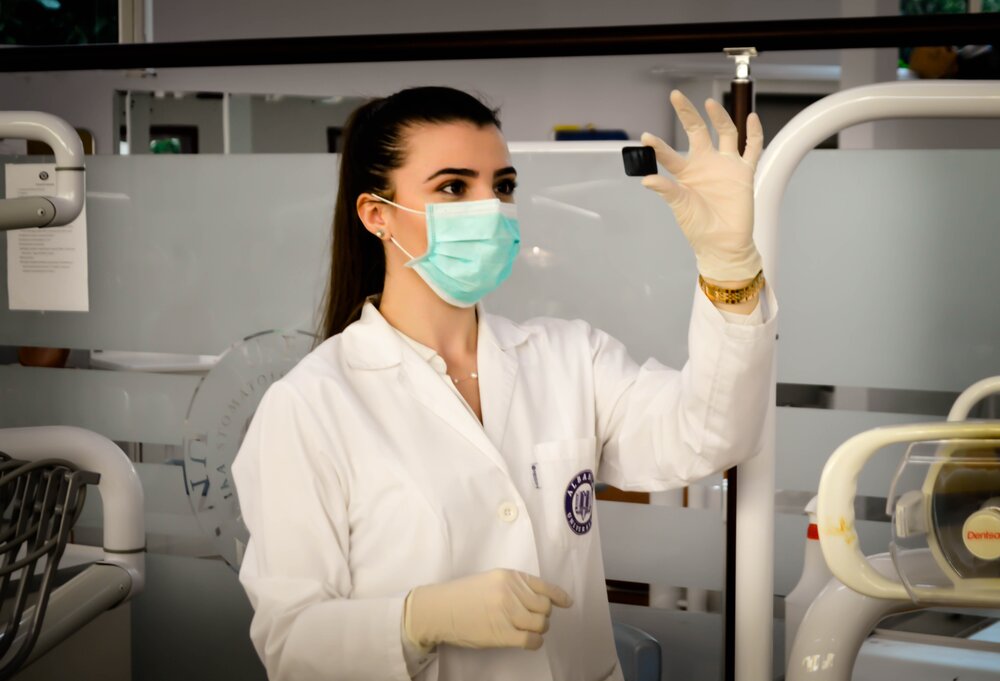Chronic Lymphocytic Leukemia (CLL) Treatments
Newest CLL Treatments: A Wave of Targeted Therapy Drugs

CLL is a chronic leukemia that affects thousands of people every year. Like many cancer types, research has come extremely far in the last 10 years.
Pharmaceutical companies are releasing new drugs to combat the cancer cells in innovative ways. Research centers are full of dedicated doctors who want to see an end to CLL.
What has come of all that research? There have been a handful of new drugs to come to market in the last decade.
On the way to a cure, we’re seeing new medicine and new ways of using that medicine to achieve longer periods of time in remission, diminish side effect profiles, and give better quality of life.
Rituxan is a drug that was approved for CLL almost 10 years ago. Ibrutinib has been around for a few years and was first approved for CLL treatment in 2014.
It’s made its way through about 10 approvals for CLL since then. This year, it was approved as part of the first non-chemotherapy regimen for new patients.
What are BTK inhibitors?
BTK inhibitors are pills that target the BTK, or Bruton’s tyrosine kinase, protein. They work by blocking a cell signaling pathway, also called B cell receptor signaling.
Dr. Kerry Rogers, a CLL specialist with Ohio State University’s The James Cancer Center, says. “This makes the CLL cells not behave like CLL cells and die off over time.
The two main BTK inhibitors that are approved for CLL are ibrutinib and acalabrutinib. Ibrutinib is a once-daily pill. Acalabrutinib is more selective and targets pure things that ibrutinib does. It is a twice-daily pill.”
What is ibrutinib?
Dr. Tim Fenske is a leukemia and lymphoma specialist with nearly 15 years of experience in the field. He says, “Ibrutinib blocks an enzyme called bruton’s tyrosine kinase or BTK. This is an enzyme that does play a role in normal B cells, but it’s a very important enzyme in CLL cells too.”
Dr. Jacqueline Barrientos is a CLL specialist and researcher. She has done research proving that ibrutinib has better outcomes than chemotherapy.
“We just published some data comparing [ibrutinib] against the best chemo regimen. The big winner was Ibrutinib. Even in younger people, the best therapy is a targeted agent,” she says.
»MORE: Read more about ibrutinib and other patient experiences
What is acalabrutinib?
It’s basically a second-generation ibrutinib. It works the same way, but it might be a little more efficient. Dr. Fenske says it’s more selective with what it targets.
It isn’t technically approved for CLL yet, but it’s probably going to be approved in the coming year. It seems to be more selective for BTK than Ibrutinib. We believe that some of the side effects from Ibrutininb are due to what we call “off-target effects,” so in theory, Acalabrutinib might have a more favorable side effect profile
Dr. Barrientos says acalabrutinib may give patients similar results as Ibrutinib with less joint pain.
What is Venetoclax?
Venetoclax works in a different way. It is a BCL-2 inhibitor, and it basically tells cells that were supposed to die but didn’t to die.
“Venetoclax blocks a protein and turns a death signal back on in the cells, triggering apoptosis. That’s just a fancy term for programmed cell death. It restores the cell’s ability to die,” Dr. Fenske says.
Venetoclax vs. BTK inhibitors
Dr. Rogers explains the pros and cons between venetoclax and the BTK inhibitors on the market, now:
“Venetoclax is like a time-limited treatment versus BTK inhibitors, which you take indefinitely till they stop working or you develop side effects and have to quit.
Some people have very strong feelings about if they want to take something and just get it done and stop, or if they’re just fine adding another pill to their pillbox. They don’t want to bother with antibody infusions. They just want to take some pills and go back to working or golfing or whatever it is they want to do.
Both are usually tolerable for the majority of patients. The ones who take long-term, obviously, for some patients have more chronic side effects.
Both these treatments are so effective, if you’ve never taken venetoclax or BTK inhibitors before, you can really pick based on your preference for treatment duration, and what side effects may or may not matter for your other health conditions.
BTK INHIBITORS SIDE EFFECTS
The main side effects of BTK inhibitors are:
- Bleeding
- Bruising
- Cardiovascular side effects
- Increase in blood pressure – high blood pressure can increase the risk for things like heart attacks and strokes. Overall, it can decrease cardiovascular health.
- Abnormal heart rhythm called atrial fibrillation, or a-fib. A-fib is usually not life-threatening but is very irritating to deal with.
In addition, it can sometimes cause:
- Joint aches or pains
- Inflammatory arthritis
- Diarrhea
- Heartburn
- Rashes – those usually go away or are less of a problem
Most people find the side effects from the BTK inhibitors tolerable, so they still go about their life with these things.
But for someone that has atrial fibrillation or is taking several blood pressure medications already, this might not be the best idea. People with bleeding disorders or who need warfarin anticoagulation don’t want to take this class of drugs if they have options.
VENETOCLAX SIDE EFFECTS
Venetoclax, on the other hand, can cause tumor lysis syndrome at the start. All the CLL cells die so quickly it releases toxins into the blood. That’s treatable, but if you don’t watch out, it can be life-threatening or fatal.
You actually have to start the dose low and increase it slowly. People take a low dose, and over five weeks, they increase the dose every week to get to the full dose of venetoclax, which is 400 milligrams. They have to come for at least two days in a row for blood tests or monitor tumor lysis syndrome every time.
With this monitoring scheme, it’s very safe, and people developing tumor lysis syndrome can get that treated usually with medications. Things seem to go very well for people, but it’s a lot of hassle to do that.
To protect people from tumor lysis syndrome, they have to stay hydrated. People who have heart failure, take diuretics or have kidney impairment, which could make tumor lysis syndrome more common and more dangerous, might not want to go this path just because that’s a greater risk to their health.
Once people are at the target or treatment dose of venetoclax, it actually seems to have fewer chronic side effects than the BTK inhibitors. Some of them include diarrhea, lower neutrophil count or neutropenia (neutrophils are infection-fighting cells).
People can sit down and look at their health conditions. If they have severe kidney impairment, they probably want to take a BTK inhibitor. If they have abnormal heart rhythm problems, they would want to take the Venetoclax.”
It’s a decision you make together with your treating physician.
Dr. Kerry Rogers
What is Idelalisib?
It is a PI3 kinase inhibitor. It blocks a different enzyme than BTK in the cell. It blocks the enzyme that is responsible for things like cell growth control, metabolism and translation initiation.
»MORE: Read more about BTK inhibitors
It’s important to remember that while treatments are getting better all the time, they may not always be right for every case and they may still have side effects. Researchers are working on way to eliminate side effects, but there is still work to be done.
In the meantime, there are constantly new trials opening up in which patients can sign up treatments that might otherwise not be available to them. As Dr. Fenske explains, clinical trials are not taboo:
Many people seem to think that trials are a last resort after there’s nothing left for them to try. That’s not true.
In most trials, you will not be the first person to have taken a drug. There are very few scenarios in which the patient would be the first.
»MORE: Learn more about the process of clinical trials from one program director

